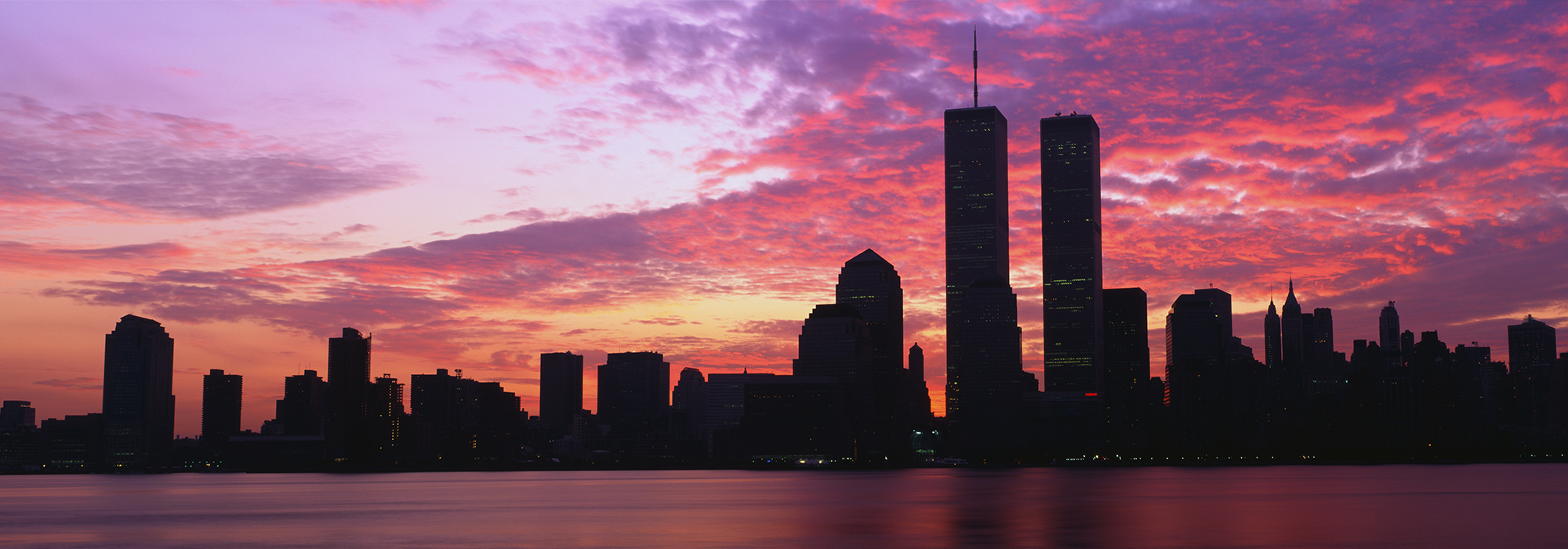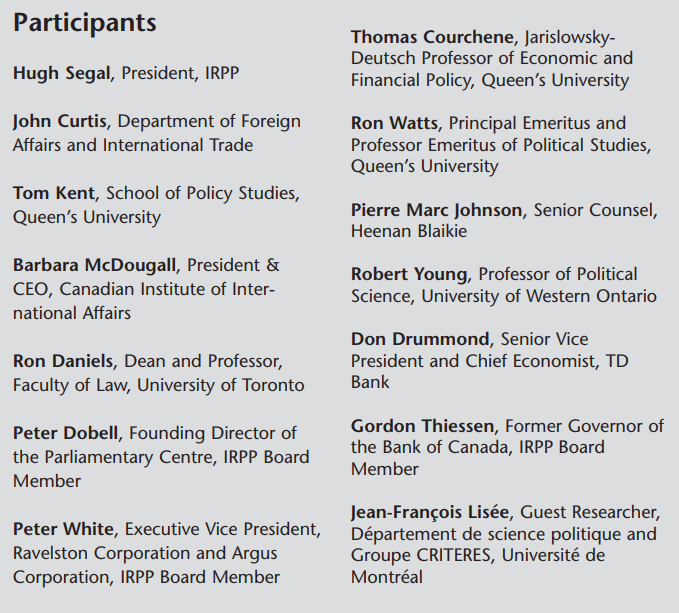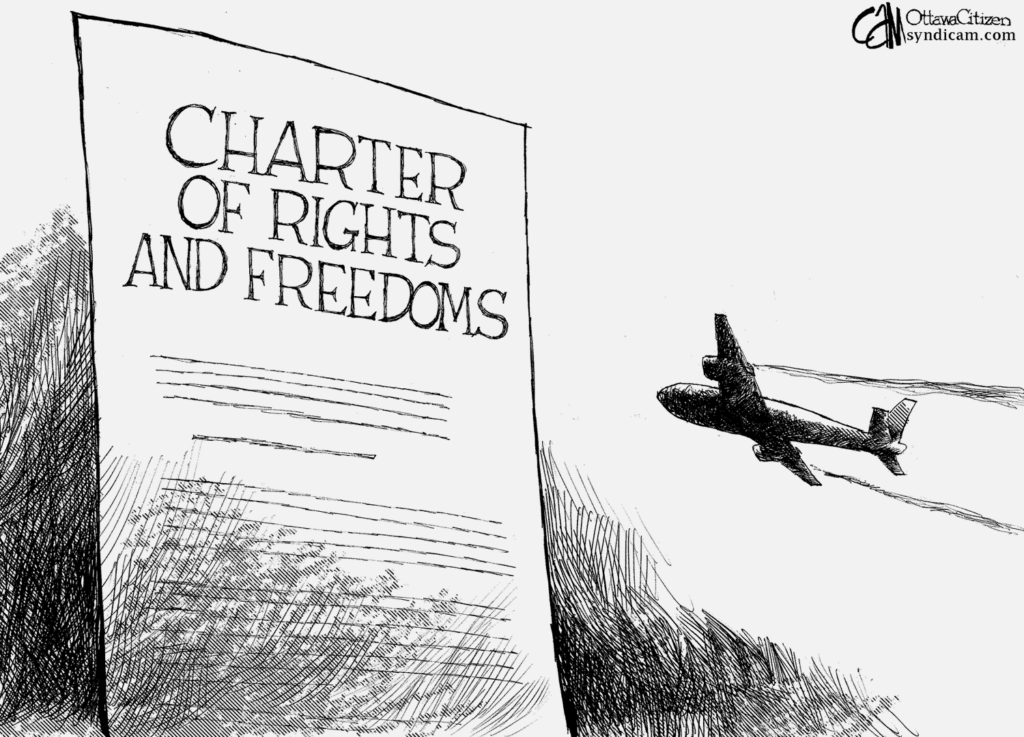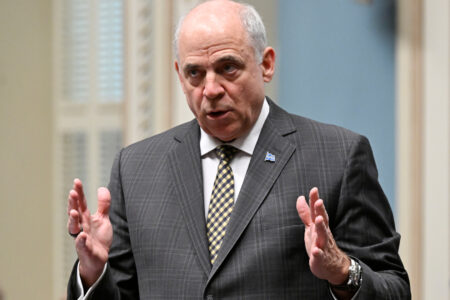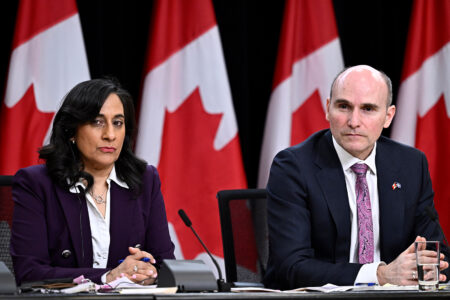
Hugh Segal: Tom Courchene reminded me earlier today that former Chinese Premier Zhou Enlai was typically inscrutable when someone asked him what the effects of the French Revolution had been his reply was that it was too early to tell. I suspect in the broad sweep of history we are worse than too early to try and understand what the events of Sept. 11 may mean. But not to begin the process would be to enclose this workshop in a bubble of disconnect from reality, which is not in the interest of what we’re trying to do.
The question, simply stated, is: how might the events of Sept. 11 impact upon the issues that we were discussing today and will be discussing tomorrow?
John Curtis: I’ll focus on the economic implications. There are both political, legal and other issues that arise as a result of Sept. 11, but let me make a couple of points on the economic side.
Uncertainty is hard to measure. It’s particularly hard for economists to measure, both in terms of the cost of uncertainty and the increased cost of doing business as we look ahead. It’s probably best to divide the economic impact into three elements. One is the immediate impact of Sept. 11, which affected all the air-related industries, not only the airlines themselves, but tourism, metropolitan areas that depend on air for tourism, air freight and the time involved in further inspection of air freight, as well as the aircraft manufacturers and the supplies of aircraft. They are all obviously hard hit.
The second immediate impact has to do with the border issues. They include both the cost of time at the border, as well as the cost of uncertainty as to what time might be involved at the border. In the manufacturing sector, firms may have to move away from the concept of “just-in-time,” to “almost-in-time” or “maybe-in-time.” And they may have to change their inventory control more generally. The effects on trucking we already know about.
A third immediate impact is on what might be called the “risk business.” There’s a cost to the insurance industry from the immediate impact and also to reinsurance. Beyond that, there’s the cost of extra security—of looking after federal buildings, provincial buildings and other buildings of some security interest.
The fourth and final immediate impact is the cost of increased government, be it in security, intelligence or any number of other things.
Beyond the immediate impact there is the medium-term impact on the business cycle. We came into Sept. 11 with the U.S. economy grinding to a halt, as Chairman Greenspan put it in his testimony a couple of weeks ago.
The U.S. slowdown has all sorts of implications, one of which is that exports, which powered Canada’s economy out of the recession of the early 1990s, clearly won’t be the growth stimulus that they have been. As in the 1980s, when we all had simultaneous business cycles slow-downs, rather than the 1990s, when the U.S. was clearly pulling the rest of us along, the rest of the world is probably in for a couple of difficult slow-growth years.
Finally, there is the economic impact for the long term. And that really raises questions about whether there will be a move towards more restrictiveness, when the border becomes an issue again. Do we rethink the NAFTA? How do we treat Mexico? Or, as the public debate suggests, are we forced to refocus on the Canada-United States border as our major lifeline, and find ways of accommodating U.S. concerns about security, which, I would argue, even sitting in government, we’ve discounted to some extent. We talk about facilitating the border; they talk about securing the border, and I think we’re going to have to worry about how we handle that. It could be through harmonization or it could be through new means of enforcement of our respective laws and regulations.
That, I think, it might be one way of dissecting the economic impact, recognizing as economists must, that we simply don’t know.
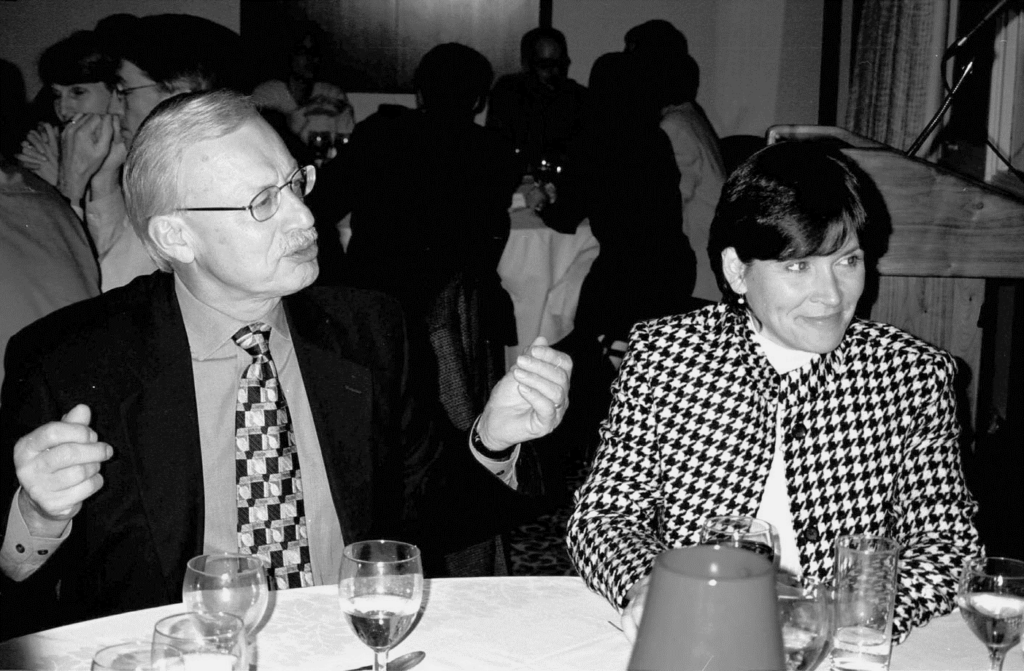
Tom Kent: I certainly do think that the present situation requires a very considerable rethinking of our attitude to immigration. Not, in my view, to become more evasive of immigration, but to be very concerned that we do not give special privileges, as we do now, to people who happen to get to Canada, onto the shore or into an airport, and then, thanks to a decision by the Supreme Court, become entitled to the full protections of the Charter of Rights and Freedoms. These protections presumably were designed for Canadians, but are in fact now being extended to non-Canadians just because they happen to be a privileged few who get into our territory.
Many of those people genuinely have a claim to refugee status, but many of them—not all, many—are simply trying to get around the normal procedures of entry. There is every reason to fear that some of them may be people whom we would not want to have, for security or other reasons. Therefore I would say that, while I understand the reluctance of the federal government to use the notwithstanding clause of the Constitution, I think the situation now is sufficiently serious that it should consider doing so. I thought this, I may say, before Sept. 11, but I certainly think it now. That clause should be used and our immigration practices, in relation to people who apply to stay after they get here, should change dramatically.
Barbara McDougall: Our immigration policy has been the subject of a lot of debate since Sept. 11. There are two or three comments I’d like to make.
The first is that there is nothing wrong with the policy. We have to continue to be what we’ve always been: a country of people who welcome others from whatever region of the world. If we lose that, we lose a large part of what we are.
There are two things that have to be tightened up. One is security coming into the country. There is nothing wrong, by the way, with our refugee determination system. I mean there is nothing wrong with the system as conceived. What is wrong is that not enough resources are being put into security checks on those coming in. When the refugee determination system was set up, it was set up so that security checks would be applied to everyone who arrived. The security checks now come after you’re determined to be a refugee. That is simply a question of resources. That has nothing to do with the system. The problem is that we need more resources to do the security checks, and I go back to what was said about the economic impact of more resources being put into that.
The other thing that needs to be said is that Canadians have always been squeamish about deportation once we’ve determined somebody does not qualify under our system and should be asked to go, or because they’ve overstayed a visitor’s visa— there are lots of ways that people get into the country besides being refugees. People come as visitors, family members, or on temporary work visas. There are a lot of ways they come in. But we don’t deport them when they abuse the privilege.
I don’t disagree about using the notwithstanding clause if necessary, even though I opposed it being in the Constitution to start with. But I don’t know that we need to do that. Under Section I, the Charter is applied within “reasonable limits.” I’m not sure that we’ve yet explored sufficiently what “reasonable limits” means in this context.
But I do think Canadians have to be less squeamish about deporting. And about detention when people are coming in. That doesn’t mean changing the policy. It means applying the policies we have.
Ron Daniels: As a lawyer and as a legal academic, what I’m most struck by is the magnitude of the changes that we are now contemplating to so many of our core laws and institutions. And we are doing so in a very, very short time frame. As you can see from the comments that were just made, we’re thinking about significant changes to criminal law and to national security legislation. Elsewhere, we’re talking about significant changes to trade and immigration law. A number of these changes will impact civil liberties, including the right to privacy. A number of these legislative changes are being contemplated, I worry, without a real understanding of their efficacy— namely whether they will be responsive to the challenges of terrorism, and further whether they use the least drastic means possible to achieve their ends, meaning minimum impairment of core civil liberties.
Go back to the remarks that were made a few moments ago about changes to refugee determinations— and these remarks have come up on a number of different occasions. Just look at the facts as we know them in terms of the tragic events of Sept. 11. Of the 19 hijackers who have been identified, none were refugees. They were all people who came in to the United States legally and overstayed their visas or, in fact, were on student visas that hadn’t run out.
It’s not that they aren’t issues that we ought to be worrying about in the context of determining refugee status. But what I’m concerned about are the crucial liberties that hang in the balance. Are we making these significant policy decisions that will have long-term effects with a sense of measure and proportion to the values that we hold dear in this country?
I think there are some signs on the horizon that we’re not doing a great job. We see a media that is being far more restrained in its criticism of government. The decision, for instance, of the American media to decline to publish the results of its investigation into the Gore-Bush contest in Florida is a case in point. We’re seeing a political opposition, in this country and in the United States, that, under the imperative of rallying around flag and country, that so far has declined to vigorously challenge the government’s program for addressing the challenges posed by international terrorism. The concern is that under the press of responding quickly and visibly, that we don’t have the time to have rigorous debate and deliberation over some of these changes. I think we, as members of the ideas industry, also bear some responsibility for assisting our public leaders in this regard. Has the Academy properly discharged its responsibilities in contributing in a dispassionate and rigorous way to the debate over the response to terrorism? I think that’s an open question.
For all these reasons, I think that in the weeks and months ahead, particularly as omnibus legislation comes rolling down the tracks, we have to have a very serious and comprehensive debate—recognizing we’re going to have to do this quickly—but we must have that debate. I think the burden should be placed on those who advocate change in the direction of attenuating our liberties to justify those changes, and to demonstrate that the proposed initiatives are going to have the effects that have been held out for them. I am not saying that significant legislative change is not appropriate, only that we need to be careful not to make fundamental changes to our legal framework without searching and rigorous scrutiny.
In this regard, we will have to be attentive to how vulnerable the public feels right now, and the extreme measures they will support aimed at countering terrorism. There is a sea change in climate, and this makes radical legislative changes possible. Take, for instance, the discussion we are now having in this country surrounding racial profiling. Last year, when I had a group of first-year law students over to my house for dinner and raised the question of whether they thought racial profiling—in fact in the context of border clearance—was an appropriate policy, the students looked at me as if I were from another planet. What an offensive notion I was proposing to them! How anti-liberal it was! And now, this past week, when I raised the same issue with a current group of students, there wasn’t a single dissenter. There were questions about what kind of checks on racial profiling, and in what circumstances it would be used, but what’s significant is the sea change in public attitudes. And that’s a sea change that makes me nervous.
So I think there is a large burden on us all to feed into this debate and recognize that the government is under significant pressure to be responsive to legitimate security needs, and that we have a lot of quick learning that to do about the challenge of international terrorism. I think it’s something that we should engage in very actively in this country. We should also try, as quickly as we can, to draw the European experience with terrorism into our debate, so that we can provide a much more restrained and ultimately, I hope, more powerful response that actually allows us to meet the challenge of terrorism head-on, but in a way that protects the values that we hold so dear in this country.
Peter Dobell: Just a response to the previous intervention: I understand that the plan is to send officials to embassies where refugees are applying to come to Canada. If that happens, and they are determined to keep out people who would throw away their documents before they come, do you see that as something as disturbing?
Ron Daniels: I would say no. I’m not trying to quibble with any particular change that’s being proposed. What I’m underscoring is the magnitude of the changes that were proposed. We want to have the opportunity to work through them in a careful way. Where are these proposals coming from? They’re coming by various commentators in the press, and in some quarters in the academic community. These ideas are out there, and are shaping public opinion.
Peter White: A couple of points. First, a war story. I am on the board of Air Transat. We had a board meeting by telephone this morning. Immediately in the aftermath of Sept. 11, all the insurers of all the major airlines withdrew their coverage for terrorism or acts of war. This immediately put all the airlines in default with their lessors—because nearly all of their aircraft are owned by leasing companies—and there was such an outcry that the insurers agreed to reinstate insurance up to the level of $50 million, but that still left them in default.
So governments had to step in, which they have done all over the world, but only on a temporary basis. That is an issue that is unresolved, and I think it’s going to be renegotiated month by month. There are those who predict that in Canada at least, Air Canada will not be recognizable after the restructuring that is about to take place; that Canada 3000 will disappear; and that two of the survivors will be Air Transat (at least that’s the opinion of its president) and WestJet. So I think we’re going to see some huge changes in these areas, as John Curtis indicated.
Secondly, I’d like to broaden the issue to where Canada stands in relation to possible long-term U.S. aims. If the United States is seriously waging a war on international terrorism, it will not be limited to Afghanistan or to the Taliban. It will inevitably have to take into account the possibility of further action in Iraq, possibly in Libya, possibly in Syria, and heaven knows where else. That is a debate that needs to start happening. We are, as our prime minister has said, standing shoulder to shoulder with the United States. How much farther will this coalition want to go? And how much longer will it be able to be held together if the sphere of activity widens? This I think is a choice that the US is going to have to make fairly soon.
I personally think that bin Laden probably has shot his bolt and that, after a brilliant tactical success, he will not be heard from in any unusually dangerous way in the near future. But of course there are many more other such people and groups out there.
Hugh Segal: To get to Ron Daniels’ point, can I suggest that we often apply a very Cartesian analysis around causality, which may well be the ultimate delusion. The terrorist actions transpired, there is supposedly a series of reasons that caused them to transpire, and therefore there is a series of things we can now do that will stop them from happening in the future. And that’s what is producing this rush to legislation, to restrictions on immigration, to identity cards and so on, almost overnight.
It’s not clear to me, however, that all the instruments in our arsenal are in fact related to what transpired. Or that redeploying them, intensifying them, maximizing them, increasing them will actually have a prophylactic effect. Terrorists don’t appear to act within predictable patterns, and it’s not clear that tighter border control, stricter refugee or other determination procedures will have a positive impact. This is not a rationale for complacency but for judgement.
The difficulty is that, in a democracy it’s legitimate for the public to want governments to do something. It’s legitimate for the public to want governments to appear to be addressing legitimate issues of public safety, both in terms of the sources of this particular source of terrorism and how safe we are in our public spaces in this country.
So I don’t know, Ron, assuming one takes your premise—which is, go slow, think it through, don’t act with abject swiftness and insensitivity, remember the core values that underlie our fundamental premises—that is also an argument for paralysis, for doing nothing—which I suspect the government of Canada may actually have considered as a short-term option. I wouldn’t be stunned if that were the case. But that being said, there were provincial premiers and others out appointing security advisors and calling on the government to do things. What does a government do to be responsive and yet not to trod on some of those sensitivities?
John Curtis: As a point of fact, the Customs and Revenue, people told me the other day—and I’m not sure that everyone knows this, even those who live in Montreal—that the content of one half of the containers coming into the port of Montreal is unknown, and for three-quarters of the containers it’s not known where they are going. It’s hard to believe the United States will accept this as part of our border.
Barbara McDougall: If we’re going to do something about security, whether it’s immigration or other things, that’s a question of resources too, by the sounds of things. And we do it for our security, more than anyone else’s. The people who suffer most when the integrity of our immigration system is challenged are recent immigrants—you know, the people who have swarthy skin, who are here legitimately as refugees, business people, whatever. They are the ones who are getting the sidelong glances, and they’re the ones who suffer the most. So this is not a question of us and them, this is also about all those who are legitimately here.
Canadians have to believe in the integrity of the system they have. If they don’t believe in it, then it will get shut down, and we will lose what we’re talking about, which is the freedom and the great pride we’ve always taken in the rights we share.
Those with swarthy skin who are from the Far East or the Middle East will be subject to more rigid security checks. And thank you very much, I’m glad they are. Just as I’m glad that when the IRA was very active, people who were named O’Brien or O’Neil got checked because they might be coming here to escape the “heat” or they brought in weapons, or sent weapons or money back and to Ireland. Those things are important and they have to be done. But it doesn’t mean that you do it outside due process. That’s the important part.
Tom Courchene: I will focus on only two implications—one domestic and one international.
As part of the aftermath of 9/11, both Canadians and Americans will be asking more of their respective governments. This is rather obvious on the security side—military/police replacing existing private airport security services, air marshals on planes, enhancing security at potential terrorist targets (postal stations, prominent buildings, bridges, nuclear plants, etc.). However, the call for an enhanced role for government will likely also apply to food and drug monitoring, medical/disease preparedness, as well as a host of other areas. If this represents the “demand” for more government, what about the “supply”? Thanks in part to sharply reducing financial transfers to the provinces from 1995 onward, the federal government was able to achieve budget balance in 1997. And for fiscal year 2000-2001, the federal budget surplus neared $20 billion. On the other hand, and again thanks to falling federal transfers, most of the provinces only achieved budget balance at the peak of the recent boom—essentially in the fiscal year ending in March, 2001. While the economy was falling into recession in any event, the aftermath of 9/11 has dramatically worsened our economic and, therefore, fiscal prospects. Ottawa has a better than ever chance to avoid falling into deficit but, led by British Columbia, virtually all of the provinces will spill red ink in fiscal 2002-2003 if not in the current fiscal year. Phrased differently, the federal government will be in a far better position to “supply” the public’s “demand” for more government than the provinces will be. Will this lead to a re-centralization of the federation? Will the provinces form a common front for greater revenue access? The jury is out.
On the international front, Sept. 11, 2001 burst America’s bubble of invulnerability. While some Americans may respond by calling for a pulling inward into a “fortress America,” the reality is that U.S. growth and security will require that it become more, not less, engaged internationally than ever before. The reasoning is that in this era of democratized information and international networks, the Americans will progressively need the cooperation of national and supra national actors in order to ensure control within their own borders. In return for this cooperation, it is certainly within the realm of possibility that the U.S. will reciprocate by embarking on an international strategy that embodies both more flexibility in terms of the mandates of supra national organizations (e.g. recognizing “development” as a goal of the WTO) and more tolerance in trade pacts for accommodating (democratically instituted) practices and institutions across nations. This would be a major step along the way toward “embedding globalization” in much the same way that the post-war domestic and international institutional arrangements served to embed liberalism.
Ron Watts: I think there are two aspects of Sept. 11 that are relevant. The first is that I wouldn’t be at all surprised if the importance of the federal government is reinforced at least while the crisis lasts. For two reasons: there is the financial one that Tom refers to, but perhaps even more important, will be simply the focus of the citizenry on the role of the federal government when there is a security issue at stake, just as during World War II, the federal government became much more prominent for the duration. Not that this may lead to the same degree of centralization as then, but it seems to me nonetheless that citizens will look to the federal government to play the lead role in ensuring their security.
But, second, the other side of it is that I think the federal government is going to find itself dependent upon cooperation from the provinces in a number of areas where the measures that need to be undertaken will relate to areas of provincial jurisdiction. Therefore it is not simply a case of the federal government dealing with the problems on its own, but also one of developing collaboration with the provinces in those areas where improved security relates to areas of provincial jurisdiction.
Pierre Marc Johnson: I’ll start with Tom Courchene’s remark about U.S. vulnerability. The vulnerability of the Americans is first of all on the amount of money they’ve been spending on all sorts of military hardware that is absolutely useless in the face of what they’re facing now in this so-called “new war.”
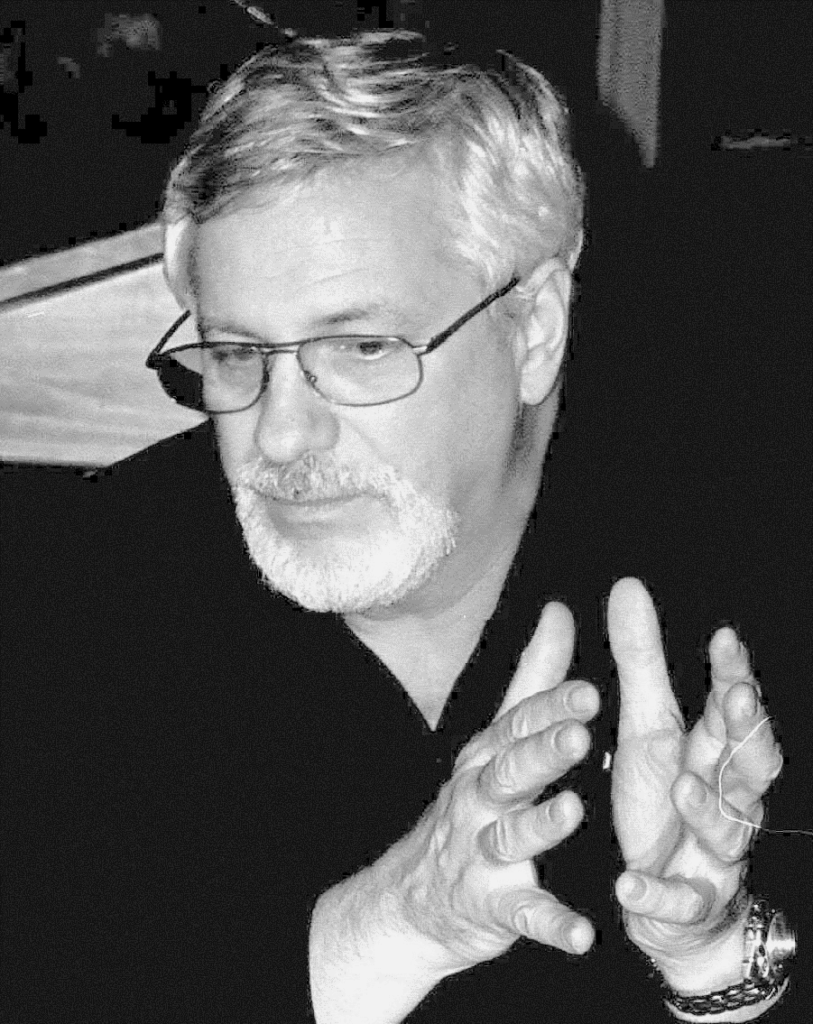
The second issue is about the perception of America’s allies as to the broader values and issues contained in American choices and foreign policy— the allies can have reservations on U.S. foreign policy aspects and will not want to be perceived as espousing an all-American foreign policy as they connect to the Afghanistan campaign and related intelligence and other activities.
Some of the values put forward by the Americans are fundamentally the values of the Western world and the Age of Enlightenment. But American society also carries values which, for many Europeans—I would say in parts of Canada, too—are not values that all identify with.
That being said, the Americans are mighty. We’ll see a period of unilateralism. We’ll see agenda-setting. We’ll see alliances which are based essentially on the American agenda, I think, in the coming year or two years. Canada will be affected by that as much as other countries are.
More broadly, the security obsession is going to translate itself in most Western countries into a high degree of isolation of democratically elected officials. Suddenly, the crowds of citizens who have a right to dissent will be treated as fundamental dangers to security. I think we’ll live through a period where the executive branch of government will isolate itself when it engages in international activities around the WTO, the G8, the G20 and in other such gatherings.
That opens a door to an interesting role for parliamentarians. They’re at the core of our democracy. And as the executive branch of government and its security apparatus isolates itself, it’s time like never before for parliamentarians to come out, and to listen to the legitimate concerns of citizens about these basic issues, which touch globalization, and to give them that forum where they can express themselves. I think it’s going to be possible for citizens to come in front of parliamentary-like forums, in the context of G8, G20 and WTO, to express themselves.
Hugh Segal: May I just ask: is Sept. 11 a fundamental shift? Or is it a manifestation of a larger problem which is more pressing and more painful and caused an unspeakable loss of human life amongst friends and neighbours of ours?
Robert Young: Hugh, I think that’s a really good question, and I have two reactions to it. One, I think that the Sept. 11 events fundamentally destroyed North America’s sense of security. I hadn’t realized how secure North Americans felt until I spent a bit of time near the Middle East in countries where there was a non-trivial probability that your neighbour would come over one day and shoot you. North Americans have never felt that. And now, I think they feel that. So in a sense, I think it is a real sea change in how they see themselves.
But even if it’s not, even if it’s an event which is going to be huge at the moment and five years from now will not be huge—although I don’t think that this will be the case—but even if it were, I think it’s a case of path dependency. This is why in my paper I cite Paul Pierson’s paper on increasing returns and path dependence in politics. If there is ever a case of increasing returns, it seems to me that this can be a case. Every reaction that the US and the West take in response to terrorism is going to spawn more terrorism. I don’t think there is any doubt about that. Gwynne Dyer gave a talk recently at Western, and in his view, the optimal response of the West to this whole thing is to do absolutely nothing. But he recognized that because of public opinion, the Americans have got to do something. So they will do something, but whatever they do will create more opponents. And more terror will create more response, will create more opponents, will create more response. So, even if it is not the biggest shock in foreign policy in the 21st century, it’s a case in which relatively small events can have big effects, and big and enduring repercussions. And so I think it’s a whole new ball game.
Pierre Marc Johnson: In the new ballgame you’re talking about, I think there are two elements that are side effects, or collateral events. One is that there will be no more Boston and New York money for the IRA. And the second is that the Americans might have permanent bases very close to China, as they settle in Central Asia—which I think is what the real security long-term agenda of the United States is about.
Peter Dobell: It seems to me the most immediate consequence of Sept. 11 is a total transformation of U.S. policy towards the world. A government which was essentially isolationist and very right-wing has transformed itself and given itself a world mission. That mission will not be easily resolved because they’ve taken on a problem that can’t be easily settled. And so we will find that the Americans will be engaging, not only in Afghanistan, but elsewhere as provocations lead them to move. At the same time, economically, they’re moving from an economic policy which was non-interventionist— which was not looking to government to contribute to the development of the economy—to one where now they’re talking about putting $75 billion into the stimulation of the economy.
In my view, the Americans, because they are the ones who have been hit, are the ones who are going to react most dramatically. The rest of us, if there aren’t more serious incidents, will become adjusted. I don’t think the Americans will be for some time.
Don Drummond: In the modern economic era, we tend to dismiss government stimulus using fiscal policy. You’ve got a ten trillion dollar economy in the United States, and you’ve got almost one-tenth that size here. So normally any stimulus is fairly small. But this package, all of a sudden, is of a substantial nature, especially when you put it together with some other things. They’ve got about $60 billion worth of tax cuts that they already had in place, that were mailed out to people in July through September. There’s a second set of rebate cheques amounting to $40 billion from October this year until March next year. Then there is $63 billion of ongoing income tax cuts. They’ve got $40 billion in the immediate security package. Only $5 billion in direct spending, but $10 billion in loan guarantees for the airlines. While Bush initially asked for another $60-75 billion of stimulus on top of all of this, the package being worked on in Congress is in the $98-100 billion range. The way the various packages would flow out is the equivalent of about 1.2 per cent of U.S. Gross Domestic Product in the second half of 2001 and around 2 per cent for 2002. So, everything else equal, that’s going to add two percentage points to the U.S. growth rate next year.
But everything else isn’t equal. On the plus side, you’ve got a pretty easy monetary stance. Money supply growth rates are in the double digits. If you look at real interest rates, they’re about zero. It’s not just the central bank, it’s the bond rates, as well. The two-year government bond rate in the United States is 2.7 per cent, and that’s the lowest such rates have been since 1958. There is a whole generation that’s never seen those types of interest rates.
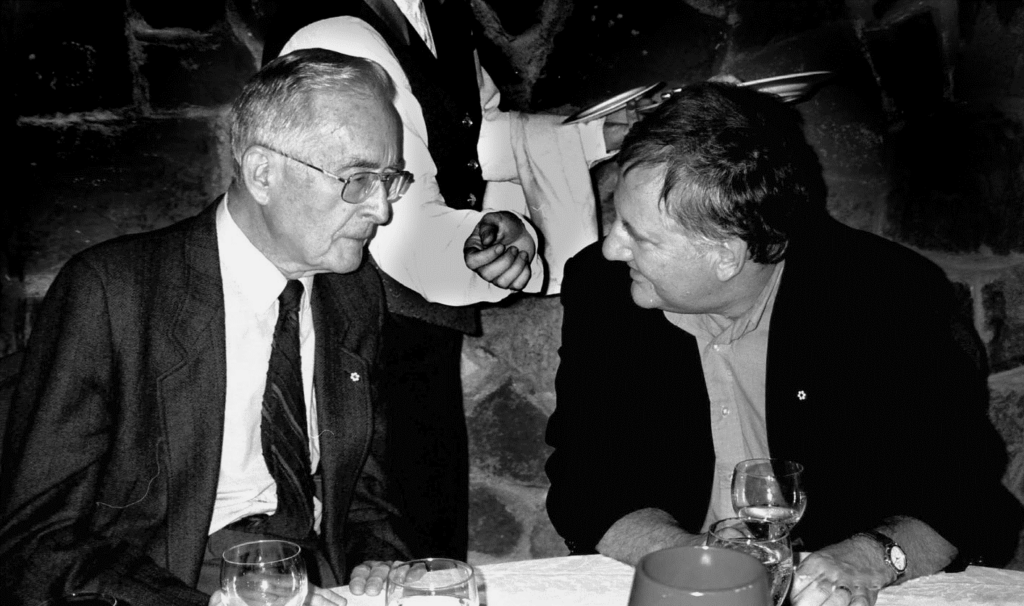
But then you’ve got the one thing off-setting that, and it’s the one thing that we don’t really have any precedents for judging: the psychological impact, what it’s doing to investor and the consumer confidence. In a best-case scenario, maybe the shock will wane in about a month. In the only things that we’ve seen that are similar to this—the Gulf War, the Cuban Missile Crisis and President Kennedy’s assassination—that seems to be what happened. But we haven’t seen anything like this before. If there’s an escalation and more threats and even actual deeds from the terrorists, you could see that psychological impact lingering for some time.
So on one side, you’ve got a massive amount of monetary and fiscal stimulus, which should give some confidence not for the remainder of this year, but in 2002. But you’ve really just got a black box in terms of how consumer and investment psychology is going to play out against that.
John Curtis: I think one can almost summarize Don’s comments, which are correct, as being that we’re not sure whether there will be an arithmetic recession or a behavioral recession. The psychology really is not clear yet. Which could mean that instead of a V recession, as some have suggested, it could be a long U.
Hugh, to answer your longer-term question, though, “Have things changed?”, one thing that hasn’t come up tonight is the permanent increase to the cost of doing business. Certainly within Canada and the United States, and perhaps in Europe as well, we might find ourselves to be much more “Asian”—which is to say that personal contact and trust become much more important in business relations. With whom are you dealing? Where did you get your money? Where is the money from the contract going? There might be much more of that. Call it government intervention, but I think it’s deeper than that. It could be a fundamental change in how things are done. And that could add a per cent or two of permanent cost to doing business.
Gordon Thiessen: I don’t know that you want to draw a lot of long-term conclusions yet. I’d be very wary about suggesting that the economic situation has fundamentally changed, in some long-term sense. What you’ve got now is a whole lot of very frightened people. And governments, especially in the U.S., are going to react to that. I suspect they’re going to react to it in Canada as well. The news today about yet another anthrax victim, this time in New York, is going to frighten an awful lot of people. And so governments, in the near term, are going to be completely focused on what they can do to raise people’s sense of security. And I suspect they’re going to be under an awful lot of pressure to do whatever you have to do—at least in the short run—to raise that sense of security. Because if they don’t, that sense of uncertainty is going to cause a lot of people to just hold back and hunker down. And there will be economic consequences, macroeconomic consequences, which will leave the sense that the terrorists have won here. Governments are going to be under enormous pressure to make sure that doesn’t happen.
While there has been a lot of monetary stimulus going into the economy right now, the one argument you can make for a Keynesian-type fiscal stimulus is when you are in a period of profound uncertainty and lack of confidence—which comes closer to the 1930s than anything we’ve had before—if you are really in that situation, then there may be an argument for some kind of Keynesian-type macro stimulus. But, for goodness’ sake, be awfully careful about coming to that conclusion and getting yourself caught into something that is going to be long-term expenditure, because this current economic weakness may not last that long. I think at this stage we simply don’t know. I wouldn’t be quick to say that it’s going to be a change from now and forever, and that we ought to make policy changes on that basis.
Jean-François Lisée: I want to go on in the same sense. Although the short- and mid-term impact that’s been spoken to is quite right, I’m worried about this talk about fundamental change, how the world has changed, and our values and so on. Let’s look even at the question of insecurity. I lived in Washington in the mid to late 1980s. I was on Capitol Hill, but further down, and we could hear the shots at night. We could hear the helicopters. We knew that was the time in which a young black American had a greater chance of being shot in the US than the young American who had a tour of duty in Vietnam in 1968.
The level of violence and insecurity lived in major American cities in the late 1980s was something people learned to live with. And the next day you got up and you went to work. In the early 1970s, a month didn’t pass in the U.S. without some sort of kidnapping, explosion, riot. Insecurity is something, if it’s low level, that you learn to live with. I lived in Paris in the early 1980s. One night I heard a bomb from—I don’t know if it was the Corsicans or the Algerians, but you know, this was part of living.
The question of will the American people stay in a state of neurosis is entirely dependent upon the terrorists’ ability to strike in a major way and in short order. If there is another plane attack, if there is a massive anthrax attack, if there is a massive disruption, then as long as these massive attacks occur, you can have a prolonged period that would have a major impact. But if the terrorists can only make low-impact strikes, as the Americans witnessed in the early 1970s, or as the Europeans lived through with the Red Brigades and all that, a society learns to live with that and go about the business of growing the economy, or whatever.
I think the example given about Kennedy’s death is the only similar event to that of the World Trade Center that we can find. This is one of the many cases when America lost its innocence. (There are so many times when it has happened!) And yet somehow the decade unfolded with growth and with a number of things going on. I’m very young of course, but I remember the Gulf War. Everything stopped during the Gulf War, and we said that everything would be changed after that. And yet after that, we had Clinton, and we had multilateralism, and then we had Bush II, and we had this first attempt at a very unilateral way of seeing things. So it all depends. If this action in Afghanistan stops in a month, and we go from a high level of terrorist activity, which we’re beginning to witness, to a low level of terrorist activity because of some progress in the fight against terrorism, and it stays at the low level for a while, then we’ll come back to life as usual as we lived it in these past years.
So I think we have to be relative. The main variable is the ability of terrorists to strike at the very high level force as they did in the World Trade Center. If they don’t do that in short order, well then we’ll, rather rapidly I think, come back to life as usual. That’s my view.
Hugh Segal: I think we’re going to take Jean-François’ analysis as our final point of discussion. It just occurs to me that when we see what happened in 1970—with the War Measures Act, the suspension of all civil liberties, the arresting of 400 Canadians in the middle of the night, none of whom were ever charged—the American response to date within their own country actually seems quite measured by comparison, in view of the fact that 6,000 souls perished. If we’re going to live next to a superpower, we’re probably fortunate the superpower we live next to is the United States, for a host of very good and constructive reasons.
Photo: Shutterstock



